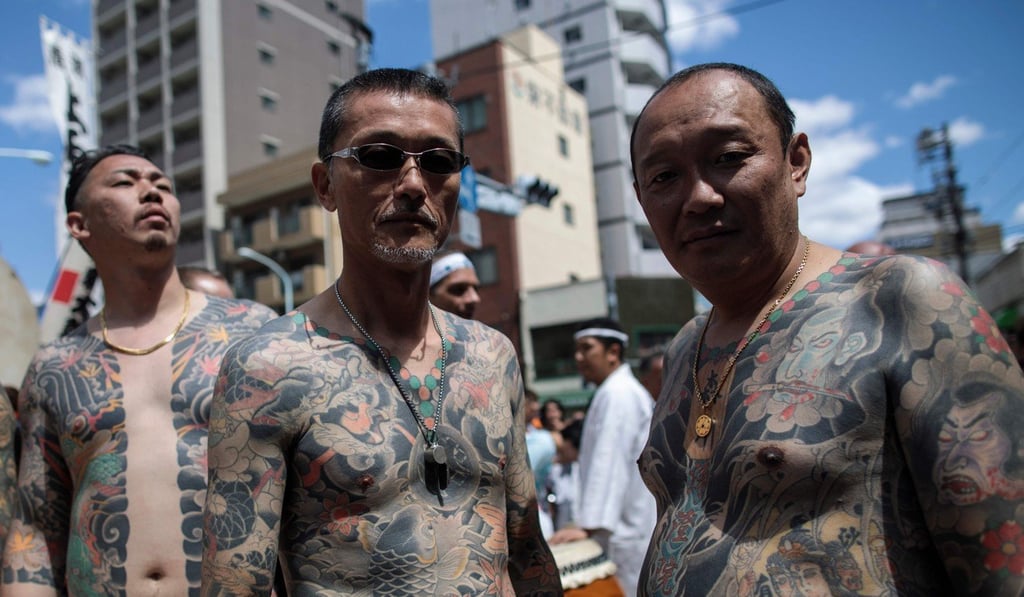Japan’s yakuza are being arrested for poaching fish. Are they all washed up?
- A police crackdown has seen members of the underworld, usually associated with violent protection rackets and narcotics, turn to illegal fishing
- Membership is dwindling and the public sees them as an anachronism, with efforts to bust gangsters likely to step up after next year’s Olympics

Yakuza-watchers suggest a police crackdown on the gangs’ traditional sources of income has made poaching one of the final lucrative sectors they have been able to exploit, but a new book focusing attention on their operations in the industry has prompted the police to act.
Police this week announced they had arrested members of a yakuza group after they were found to have been illegally taking fish and shellfish from a site off Nagasaki Prefecture, in southwest Japan. The authorities told Kyodo News the gang members had borrowed scuba diving equipment to collect shellfish and had been poaching in the area for at least three years.
Police also allege the catch was sold to a restaurant in Nagasaki city that was managed by a relative of a senior figure in the underworld group. The restaurant reported annual sales of Y300 million (US$2.8 million), they added.
Jake Adelstein, a crime writer and author of Tokyo Vice: An American Reporter on the Police Beat in Japan, said the police had long been aware of gangs’ involvement in the fishing industry but had turned a blind eye until the release this year of Fish and Yakuza: How Organised Crime Cashes in on Poaching by Tomohito Suzuki, which detailed those links.
“The gangs have been involved in fishing for a decade as a result of the police targeting their traditional forms of income, in particular the law that was introduced in 2011 that made it illegal for anyone to pay protection money to a gangster,” he said.

“Overnight, people stopped paying because they could be arrested, which obviously cut off a major revenue stream for the gangs.”
